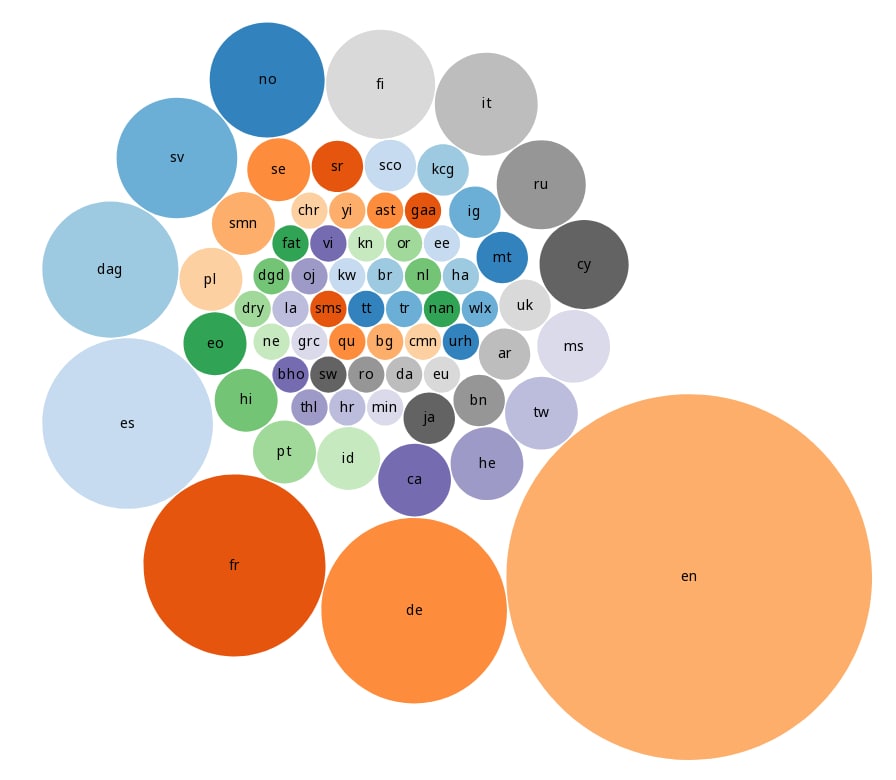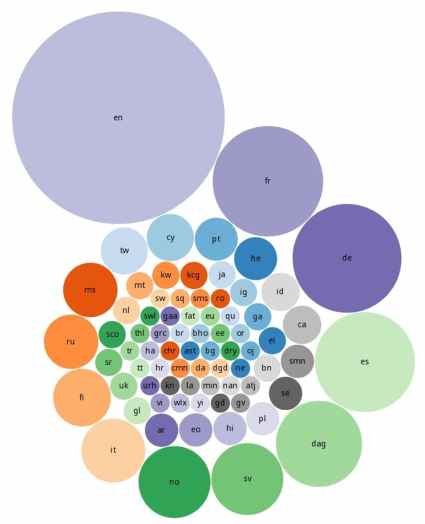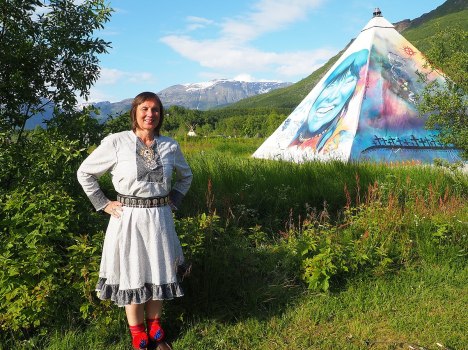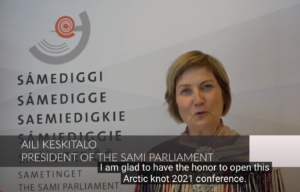Indigenous people and the Wikimedia movement: Three take-aways from the Arctic Knot Wikimedia Language Conference

This blog was first published at the Wikimedia movement Diff blog on the International day of Indigenous People, August 9 2021
The United Nations’ theme for this year’s International Day of the World’s Indigenous Peoples is “Leaving no one behind: Indigenous peoples and the call for a new social contract.”
According to the UN, a social contract is “an unwritten agreement that societies make to cooperate for social and economic benefits.” The theme calls attention to the reality that many Indigenous peoples and communities were excluded from their countries’ social contracts from the start. It also includes a call to action:
“The new social contract must be based on genuine participation and partnership that fosters equal opportunities and respects the rights, dignity and freedoms of all. Indigenous peoples’ right to participate in decision-making is a key component in achieving reconciliation between indigenous peoples and States.”
United Nation’s International Day of the World’s Indigenous Peoples
How can we as contributors to Wikimedia projects contribute to the new social contract that includes Indigenous peoples?
What we learned at the recent Arctic Knot Wikimedia Language Conference is: In our movement, we have many tools, but the true magic will always be in the community.
The Arctic Knot conference is a part of the Celtic Knot series of annual convenings that invites participants to look at small and underrepresented languages and their use on the Wikimedia projects. In addition to those small languages experience, the Indigenous languages have a series of additional challenges. Arctic Knot provided space and focus for the Indigenous language communities to connect with eachother and with others in the movement.

Language spiral indicating languages spoken at the Arctic Knot Wikimedia Language Conference 2021. Among the 180 participants, we spoke a total of 75 languages
Here are three key takeaways from this year’s event to consider as we look to further support Indigenous peoples and languages on Wikimedia projects.
-
Build with, not for
From Sámi people, we often hear stories on how they are used to seeing projects being launched to fix something in their community without their involvement or any interest in shared ownership over project timelines and results. This is a story we hear from many of our colleagues around the world working with Indigenous people. In the Declaration of the Decade of Indigenous Language 2022-2031, Indigenous peoples are put at the forefront with the slogan: “Nothing for us without us”.
This seems to come natural for Wikimedians. Throughout the conference, the main thing that was emphasized from everyone working with Indigenous peoples was that everything we do has to be on the premises of the Indigenous peoples. In the word of Oscar Costero, president of Wikimedia Venezuela:
“We are there for support, and working as a bridge so they can have this portal and use it as a sort of conductor.”
Oscar Costero, President Wikimedia Venezuela

Very inspiring is also the work done by Wikimedia Canada and the Atikamekw. Among many important and interesting learnings, one was the importance of seeking support and approval from local leaders when they started working with Wikipetcia. That was not only a way to engage the community, but also showing respect for the social structure in the community.
-
Understand the unique needs of different Indigenous communities
In the presentation of the Portal for Indigenous People, Oscar Costero described how they first thought that the Wayuu community needed their own language version of Wikipedia. However, their perspective changed when they actually visited with the community and realized that a vast majority of people in the community do not write their language.
They decided to reframe their work completely. The ability to understand the needs of the community, and find solutions accordingly is a key factor for success in the long term work of supporting Indigenous languages. The enthusiasm for the project seen among the Wayuu people also participating in the presentation shows how they are experiencing working with a tool that creates value and engagement in the community.
Even if each community will have different needs, the tools created along the way can be adjusted, repurposed, and improved. The portal for Indigenous peoples is created in an impressive collaboration across Latin-America, and is a brilliant example on just that. And through a space such as the Arctic Knot, even more people get to see what is being done, and hopefully the bridges will be not only from Wikimedians to local Indigenous communities, but between different groups of Indigenous peoples across the globe.
Our role as Wikimedians is not to decide how Indigenous peoples use Wikimedia projects, but to show the opportunities and work out good solutions together.
-
Think outside of the Wikimedia box
To reach “a world in which every single human being can freely share in the sum of all knowledge,” we need to think beyond Wikimedia. Knowledge can be stored in pictures, archives, music, oral traditions, and craft practices to mention a few. To make this knowledge accessible, it is fundamental to build relationships with organizations such as archives and museums, as well as with groups and organizations within Indigenous communities.
Collaborations with Global Voices and Wikitongues are some examples. Wikimedia Norge’s involvement in the Unesco Decade of Indigenous Languages as well as reaching out to the Sámi parliament and Sámi archives are ways we can establish ourselves as a valuable alliance for the Sámi people.
The opening words from President of the Sámi Parliament in Norway, Aili Keskitalo, brought a strong sensation of purpose to the participants at the Arctic Knot Conference. Our hope is that this purpose reaches the whole Wikimedia community.
Although not working directly with indigenous matters, your participation and engagement in the movement matters because of the community each one of us contributes to.
As a politician, a Sámi language user and a mother, I want us to have the same chances of using Sámi everywhere.
Aili Keskitalo, President of the Sámi Parliament.
The Wikimedia universe is full of amazing tools, but even more amazing are the people using those tools.
If the enthusiasm, openness, and positivity we experienced at the Arctic Knot Conference is representative for the whole Wikimedia community, this movement can provide a safe and productive space for Indigenous peoples. Among us they can set the premises of what they want to share about their cultures, as well as how they wish to define themselves and their histories.
Our opportunity is to be the bridge so we can reach the goal of the movement that is motivating so many contributors: everyone’s knowledge accessible for everyone.
Do you want to know more?
The take-aways described here are really just drops from the immense ocean of insight and experience shared at the conference. If you want to dive in deeper, check out the Arctic Knot conference program page where you can find direct links to each of the presentations from the main program and the video pool where you can find all video submissions that did not get a space in the program.
If you prefer going straight to YouTube, we have collected all contributions in this playlist.
At Wikimania 2021, you have a chance to learn more and get involved! Don’t miss the panel debate on Raising the voices of indigenous communities from Latin America or the workshop on a future Language Diversity Hub. Both are scheduled for Tuesday 17th of August.
Why not celebrate this day of the Indigenous Peoples with a unique soundtrack? Check out the Solidarity playlist put together by Subhashish Panigrahi for the Arctic Knot conference, which includes recommendations from participants at the Arctic Knot.
Kategori: Arctic Knot, Blogg, FNs tiår for urfolksspråk 2022-2032, Innlegg forside, Mangfold på Wikipedia, Nyheter
Stikkord: #ArcticKnot #IndigenousLanguages #Wikipedia, #IndigenousLanguages, diversity

Giellavahkku - samisk språkuke - Wikimedia Norge
25. oktober 2021 , 10.26.19
[…] jobbe med språket? Hva hindrer dere i å bidra? Mer om urfolksperspektivet kan du lese på denne bloggen om konferansen med fokus på urfolk. […]